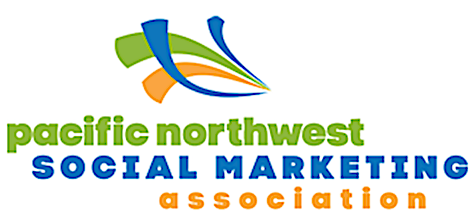About Social Marketing |
Behavior Change for Good
The discipline of Social Marketing focuses on developing a strategic marketing mix to influence behavior change for sustainable, healthy, and equitable communities.
Social Marketing is proven to improve the quality, effectiveness, and efficiency of behavior change programs to help people and communities.
What is Social Marketing?
In 2014, the Boards of the International Social Marketing Association, European Social Marketing Association and Australian Association of Social Marketing endorsed the following definition of Social Marketing:
Read more: Global Consensus on Social Marketing Principles, Concepts and Techniques 2017 (PDF)“Social Marketing seeks to develop and integrate marketing concepts with other approaches to influence behaviors that benefit individuals and communities for the greater social good.
Social Marketing practice is guided by ethical principles. It seeks to integrate research, best practice, theory, audience and partnership insight, to inform the delivery of competition sensitive and segmented social change programs that are effective, efficient, equitable and sustainable.”
Social Marketing and Social Media
Facebook, TikTok, LinkedIn, X (Twitter), Instagram, Be Real, Reddit, YouTube and more are not Social Marketing.
Social Marketing is a strategic process. Good social marketers know how to learn what people want; they test, test and and test, improve and do it all again. While a social marketer might use social media when the time comes to raise awareness of the product, service, program, person or idea they are trying to motivate people to try, they know that social media is one mere tool in their kit. Social Marketing and social media are very different things.
Source: "What is social marketing?" by Sharyn Rundle-Thiele
What Issues Can Benefit from Social Marketing?
Social marketing is used to influence specific behaviors that will improve health, prevent injuries, protect the environment and contribute to communities. Major issues that social marketing can benefit include:
- Health: tobacco use, binge drinking, obesity, physical activity, immunizations, nutrition, sexually transmitted diseases, blood pressure, oral health, high cholesterol, and skin, breast, prostate and colon cancer
- Injury Prevention: traffic safety, drowning, safe gun storage, falls, household fires, suicide, sexual assault, domestic violence, disaster preparedness, and seat belt, car seat and booster seat usage
- Environmental Protection: waste reduction, water conservation, water quality, energy conservation, air pollution, litter, wildlife habitat protection, forest preservation, disposal of hazardous waste, reducing single use plastic pollution, climate change behaviors
- Community Engagement: organ donation, blood donation, volunteering, voting, crime prevention, animal rights, literacy and financial well-being
Values
- Research-driven: strategies are evidence-based, inspired by audience research
- Caring: focus on helping people and communities
- Transparent: always willing to share
- Ethical: underpinned by iSMA ethical principals
- Result-oriented: we set goals and measure impact
Ethical Principals
- Respect and sensitivity
- Social justice and fairness
- Openness and transparency
- Avoidance of conflicts of interest
- Duty of care and nonmaleficence
- Serve public interest
iSMA Orbit Subcommittees
The Orbit Subcommittees are focused on promoting social marketing as a philosophy and form of practice. The word ‘Orbit’ to used to emphasize efforts to raise the profile and acceptance of social marketing as a key element of most social progress interventions. The following are the 9 Orbit Subcommittees:
- Increase academic course offerings
- Provide and contribute to a centralize resource for case studies
- Advocate for Social Marketing job titles/RFPs
- Increase awareness of Social Marketing among elected officials
- Consider strategic partnerships with corporations and explore more funding from foundations and NGOs
- Increase Social Media and Internet presence
- Establish a universal brand identity for consistent use and promotion by regional and international associations
- Increase collaboration among academics and practitioners
- Science communications include Social Marketing practices on audience research
Learn More
- Become a PNSMA member
- Social marketing training and certifications
- Social marketing resources
